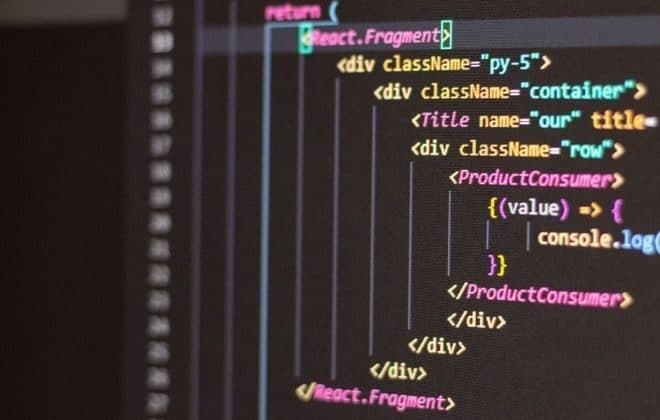
9 Common Java Development Mistakes to Avoid in 2023
Java is one of the most used programming languages amongst the developers, with roughly 65% of respondents to a survey by Statista stating that they used JavaScript more than any language. In addition, many major mobile web applications like Spotify, Twitter, Opera Mini, Signal, and more have been built using the very stable and reliable Java programming language.
The programming language has been ruling several ecosystems for quite a while. Portability, automated garbage collection, and an easy learning curve are some of the things that make Java software development a great choice.
However, while Java may be the most famous and robust programming language, it is still prone to developer error. This blog attempts to convey 9 Java development mistakes. So let’s dive into it.
9 Common Mistakes That Java Developers Make
As with any programming language, Java developers can make a variety of mistakes that can lead to bugs, performance issues, or security vulnerabilities. Some common mistakes Java developers make:
1. Planning Before Coding:
- An hour of planning can save you 10 hours of doing. If this is true, then a clear Java design plan is crucial. This would help the developers decide the semantics – what they should do and how they should approach the Java enterprise application.
- Working without a plan could be one of the biggest Java development mistakes. If the programmers begin development without a proper plan, they may create applications that are difficult to use. Also, in big organizations, good planning helps to adhere to the timelines strictly promised to the clients.
2. Never Memorize Codes:
- Another common error that an enterprise software development services company can avoid is that they should never use codes they have memorized earlier. By using memorized codes without understanding it, developers struggle to adapt their code for new situations, which wastes time and can introduce errors.
- The developers at any Java development company should be trained to approach coding logically rather than just memorizing the codes. It will help them understand codes written by other programmers, leading to better collaboration and less Java mistakes.
3. Forgetting to Break :
- While coding, ignoring the broken part can lead to severe consequences. This is amongst many common Java design mistakes developers make.Omitting the broken part in a code can make the program write zero, followed by one. This will make the program go through the entire ‘switch’ statement until it finally reaches a ‘break.
- If the mistake is not noticed until production, it can damage the Java solutions. Therefore never forget to add the break keyword wherever necessary.
4. Avoid Memory Leaks:
- Java uses automatic memory management, however Java experts should not rely on it for saving memory and preventing big Java development problems.
- The issue with persistent object referencing is that memory allocations can become vulnerable to memory leaks. This is because the garbage collector can’t get rid of objects when they still have references to them. By not setting the field to null after the collection is “thrown away” means it never gets collected.
- A memory leak could also refer to a group of objects referencing each other, causing circular dependencies. This causes the garbage collector to get confused on whether they’re needed or not.
5. Free the Resources:
- Java application development companies should code in a way that they are habitual of freeing the resources after having used them. Similarly caution must be taken if any exception were to be thrown during operations on such resources.
- Some could argue that the FileInputStream has a finalizer that can call in the close() method on a garbage collection event, however, since we can’t be sure when a garbage collection cycle will start, the input stream may consume computer resources for an indefinite period.
6. Do Not Avoid Libraries:
- Neglecting existing open-source libraries is a big mistake a developer can make. It is fine to take advantage of Java libraries as they have been created by experienced Java development companies or independent coders after they dealt with the same issues as you.
- Instead of writing codes from scratch, a Java programming company should train its developers to use these existing Java libraries to avoid time wastage and the possibility of making common java mistakes.

Source: www.github.com
7. Implement Standard Designs:
- Amongst many Java coding mistakes to avoid, one is having inconsistent design solutions. A software development company can run programs more efficiently by implementing standard design solutions in a particular problem domain.
- This technique may show good results with most Java design mistakes that might occur while writing codes for any application. This is why it’s essential to know how to use them properly. Be familiar with the most prominent Java design patterns so that your codes are not inefficient.
8. Confusing (==) for Equals while Comparing:
- A very rare but still an error that a few Java development services make is the wrongful use of (==) while comparing something.
- The == operator compares two objects directly
- The equals() method compares two objects semantically
- The == operator should be used when you want to compare two objects directly. Other than that, the equals() method is used when comparing two objects meaningfully.
9. Not Using Curly Braces:
- Not Using Curly Braces: The braces are used to open and close the code. Many novice programmers break this fundamental law of the Java frameworks, which leads to code not working correctly. This error can be caught simply by the compiler and modern IDEs; programmers still need to look for missing closing braces.
- One of the best ways to avoid the problem is to make a physical note before putting the code inside.
Read More:- 7 Top Use Cases of Java Development to Know in 2022
Conclusion
Being a Java developer is an exciting work profile specifically for those who like logic and reasoning. However, when the work gets challenging, mistakes may happen, no matter if you are a beginner or experienced.
Knowing the common design mistakes in advance can proactively avoid or reduce your production time while producing quality applications. In addition, understanding these can help you solve your JavaScript, HTML, and Java code problems.
In the end, whatever you do to avoid the mistake, acknowledging any Java development mistakes in your code, is the first step. Amongst other Java development best practices, this way, you can fix your errors immediately so the code can run efficiently.
If you are looking for a Java developer with a robust development environment and a worthy quality control mechanism, contact BoTree Technologies. Our expert Java developers are waiting for you.




